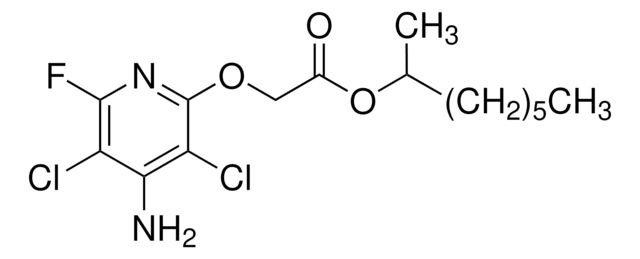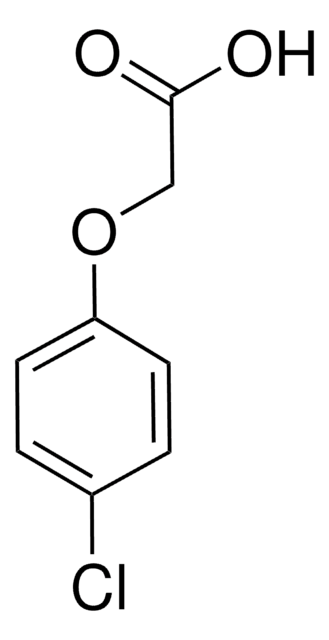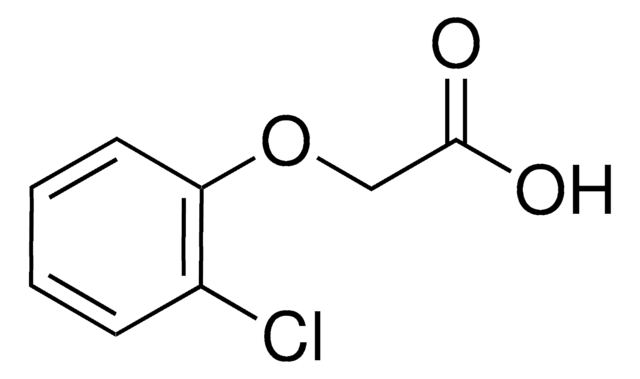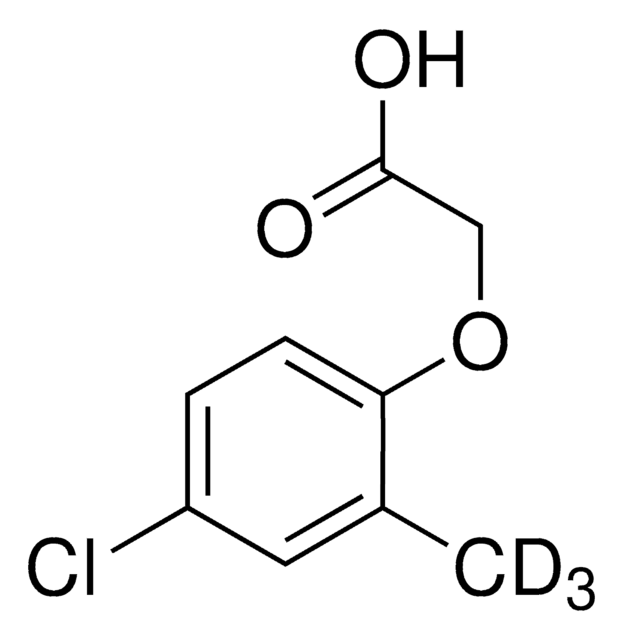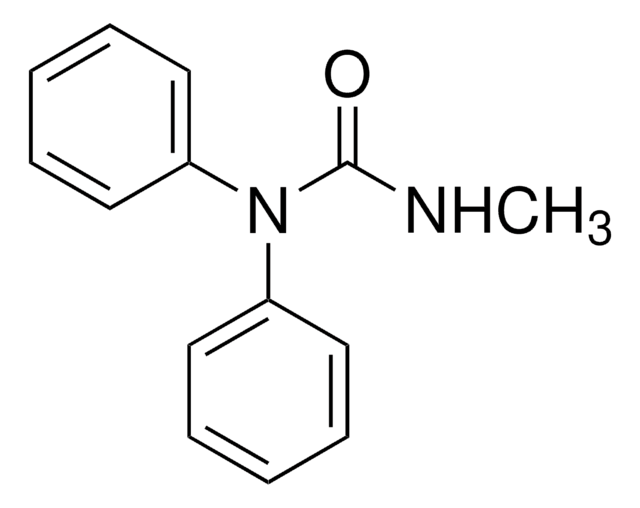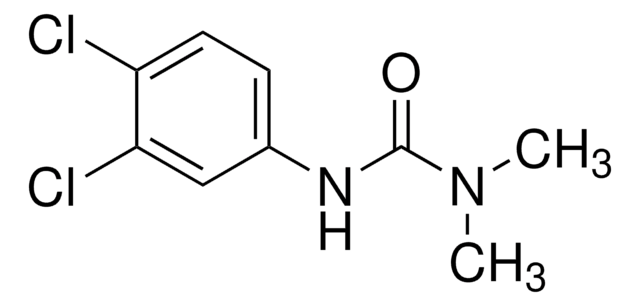25190
4-Chloro-2-methylphenoxyacetic acid
technical, ≥95.0% (T)
Sinonimo/i:
4-Chloro-o-tolyloxyacetic acid, MCPA
About This Item
Prodotti consigliati
Grado
technical
Livello qualitativo
Saggio
≥95.0% (T)
Stato
solid
Punto di fusione
114-118 °C (lit.)
Solubilità
water: insoluble(lit.)
Gruppo funzionale
carboxylic acid
chloro
Stringa SMILE
Cc1cc(Cl)ccc1OCC(O)=O
InChI
1S/C9H9ClO3/c1-6-4-7(10)2-3-8(6)13-5-9(11)12/h2-4H,5H2,1H3,(H,11,12)
WHKUVVPPKQRRBV-UHFFFAOYSA-N
Cerchi prodotti simili? Visita Guida al confronto tra prodotti
Categorie correlate
Descrizione generale
Avvertenze
Danger
Indicazioni di pericolo
Consigli di prudenza
Classi di pericolo
Acute Tox. 4 Oral - Aquatic Acute 1 - Aquatic Chronic 1 - Eye Dam. 1 - Skin Irrit. 2
Codice della classe di stoccaggio
11 - Combustible Solids
Classe di pericolosità dell'acqua (WGK)
WGK 2
Dispositivi di protezione individuale
dust mask type N95 (US), Eyeshields, Gloves
Scegli una delle versioni più recenti:
Possiedi già questo prodotto?
I documenti relativi ai prodotti acquistati recentemente sono disponibili nell’Archivio dei documenti.
I clienti hanno visto anche
Il team dei nostri ricercatori vanta grande esperienza in tutte le aree della ricerca quali Life Science, scienza dei materiali, sintesi chimica, cromatografia, discipline analitiche, ecc..
Contatta l'Assistenza Tecnica.




